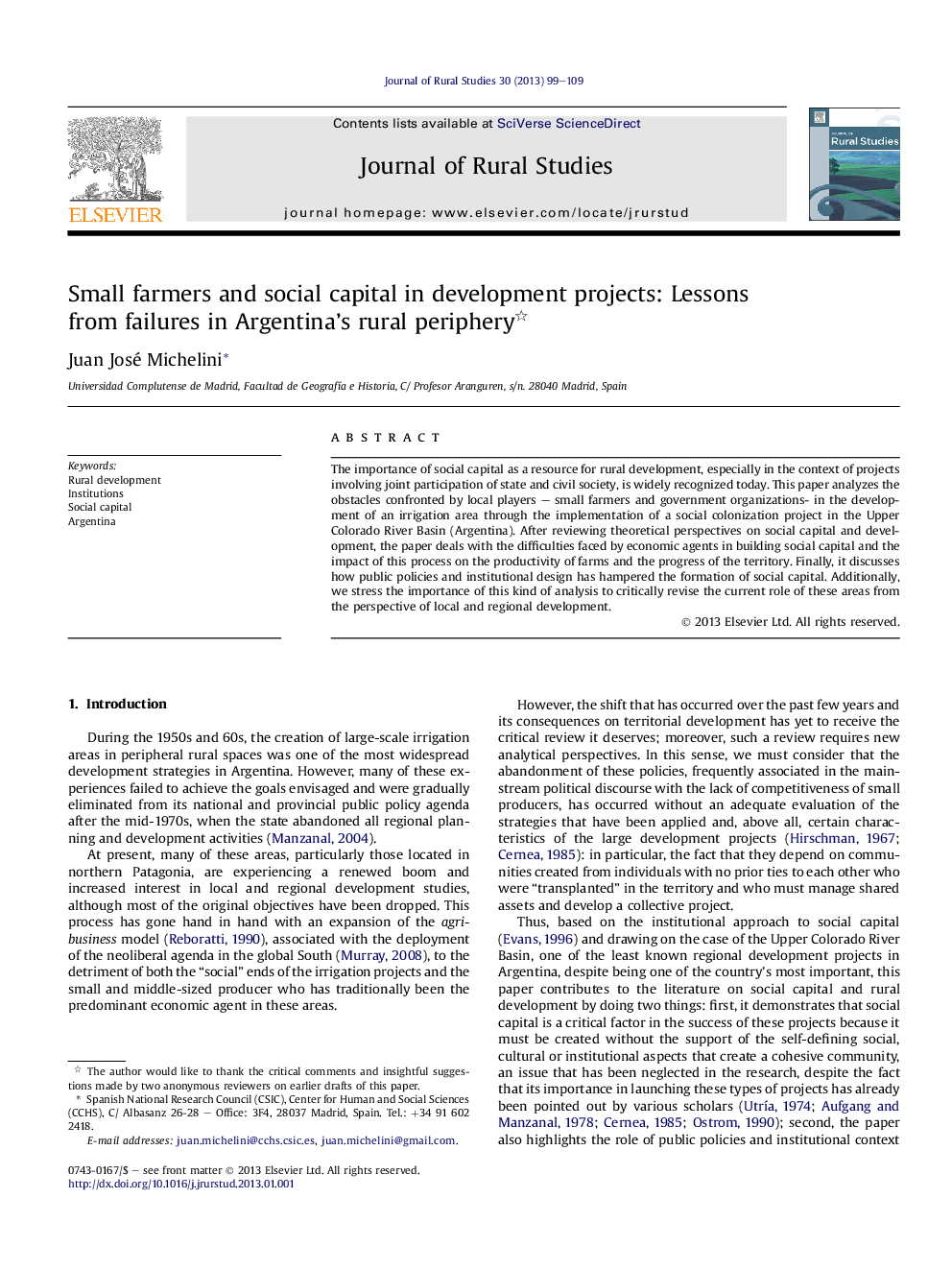| کد مقاله | کد نشریه | سال انتشار | مقاله انگلیسی | نسخه تمام متن |
|---|---|---|---|---|
| 92547 | 159980 | 2013 | 11 صفحه PDF | دانلود رایگان |
The importance of social capital as a resource for rural development, especially in the context of projects involving joint participation of state and civil society, is widely recognized today. This paper analyzes the obstacles confronted by local players – small farmers and government organizations- in the development of an irrigation area through the implementation of a social colonization project in the Upper Colorado River Basin (Argentina). After reviewing theoretical perspectives on social capital and development, the paper deals with the difficulties faced by economic agents in building social capital and the impact of this process on the productivity of farms and the progress of the territory. Finally, it discusses how public policies and institutional design has hampered the formation of social capital. Additionally, we stress the importance of this kind of analysis to critically revise the current role of these areas from the perspective of local and regional development.
► The paper assesses social capital as a key resource in development projects.
► Analyzes bonding, bridging and linking social capital in a small farmers' community of Argentina's rural periphery.
► Social capital conditioned the performance of farms and the progress of the project.
► State organizations and public policies hampered community social relations.
► Social capital and coherent state organizations are crucial for rural development projects.
Journal: Journal of Rural Studies - Volume 30, April 2013, Pages 99–109
